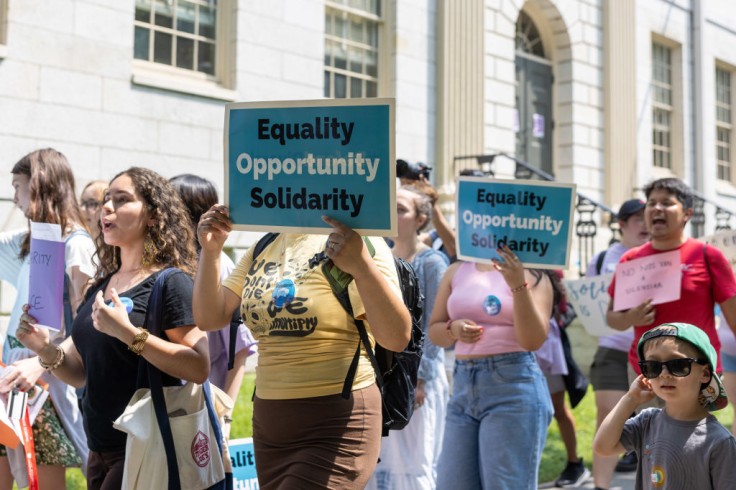
Harvard University's longstanding practice of legacy admissions has come under scrutiny as the U.S. Department of Education's Office for Civil Rights launches an investigation.
The inquiry was initiated just a month after the Supreme Court's pivotal 6-3 decision in Students for Fair Admissions (SFFA) v. Harvard, which struck down race-based affirmative action for colleges and universities.
The Department of Education's investigation aims to determine whether Harvard's admission policy unfairly favors legacy applicants, potentially violating civil rights regulations under Title VI of the Civil Rights Act of 1964.
Allegations of Preferential Treatment Spark Civil Rights Complaint
According to Quartz, lawyers for Civil Rights lodged a complaint against Harvard earlier this month, raising concerns that the university may be giving preferential treatment to children of wealthy donors and alumni through its legacy admissions program. The complaint alleges that nearly 70% of Harvard's donor-related and legacy applicants are white and enjoy a substantial advantage in the admissions process due to their status.
According to the complaint, donor-related applicants are nearly 7 times more likely to be admitted, while legacies are nearly 6 times more likely to secure admission compared to non-donor-related applicants. Furthermore, the complaint contends that 28% of Harvard's 2019 graduating class were legacies, highlighting the potential impact on diversity and access for deserving applicants from underrepresented backgrounds.
The adverse impact is experienced by well-qualified and highly deserving applicants from diverse backgrounds, as their admissions opportunities are compromised in favor of predominantly white applicants who gain advantages through Harvard's legacy and donor preferences.
ABC reported that Nicole Rura, a spokeswoman for Harvard, stated that the university is currently reviewing "aspects" of its admissions policies following the Supreme Court's decision. This review involves a comprehensive examination of various data and information, as well as insights gathered from Harvard's decade-long efforts to foster a diverse intellectual community essential to their pursuit of academic excellence.
Rura emphasized that the university's administration is committed to intensifying their efforts to encourage applications from students of diverse backgrounds, striving to open doors of opportunity for all.
Read Also: Texas Faces Legal Battle Over Controversial Book Ratings Law Targeting 'Offensive' Material
Legacy Admissions Under National Scrutiny
In the wake of the Supreme Court's ruling, which emphasized the inadmissibility of considering applicants' affiliations with racial groups in admissions, Wesleyan University's President, Michael Roth, announced the discontinuation of legacy admissions for the school.
Roth highlighted the need for universities to reconsider the use of affiliations with alumni groups in their admissions processes, echoing sentiments expressed by President Joe Biden, who previously criticized legacy admissions for expanding privilege rather than fostering equal opportunities.
The NAACP also joined the call, urging universities to abandon legacy admissions to level the playing field for all applicants, arguing that such practices unfairly favor white applicants.
According to NBC News, the July 3 complaint, drawing on data released by Harvard after the Supreme Court's ruling on affirmative action, pointed out that legacy and donor-related applicants who are predominantly white are six times more likely to be admitted, effectively limiting spots for highly qualified applicants of color.
If Harvard were to eliminate legacy and donor preferences, the complaint contends that more students from underrepresented backgrounds would have the opportunity to secure admission based solely on their merits, potentially enhancing diversity within the university's student body.